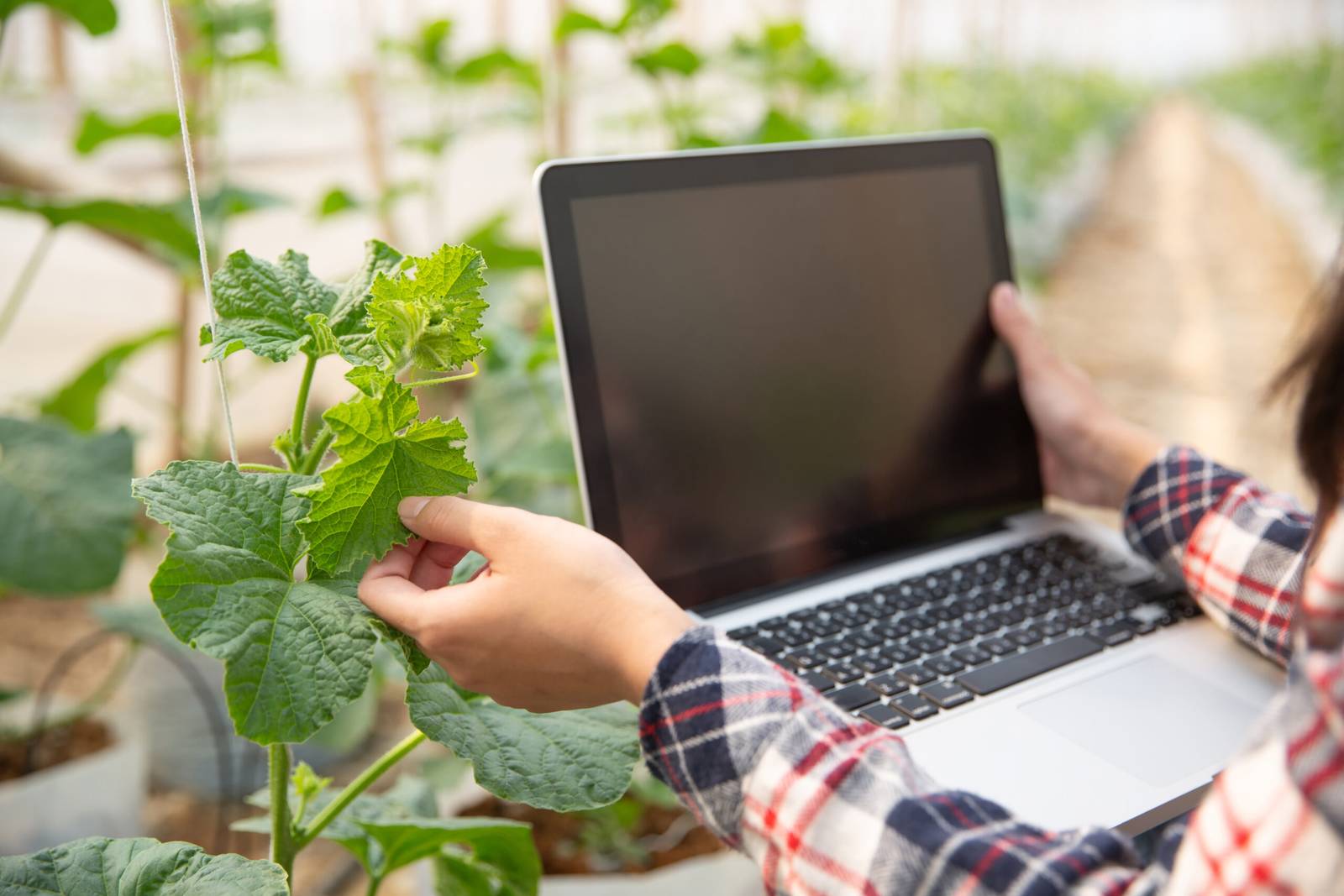Tech Solutions for Sustainable Agriculture

by Web Digital
Sustainable agriculture stands at the intersection of technological innovation and environmental responsibility. As the global population burges, the demand for food surges, prompting the agricultural sector to explore cutting-edge technologies that not only boost productivity but also minimize environmental impact. This article delves into the realm of tech solutions propelling sustainable agriculture forward, fostering a harmonious coexistence between farming practices and ecological well-being.
Sustainable Agriculture Precision Farming:
Precision farming harnesses the power of technology to optimize resource use and increase crop yields. GPS-guided tractors, drones, and sensors monitor and analyze soil conditions, enabling farmers to make data-driven decisions. This targeted approach minimizes the use of water, fertilizers, and pesticides. Promoting efficiency while reducing the environmental footprint of farming operations.
IoT and Smart Farming:
The Internet of Things (IoT) is revolutionizing agriculture through smart farming solutions. Connected devices gather real-time data on weather conditions, soil moisture, and crop health. Farmers can remotely monitor and control irrigation systems, ensuring optimal water usage. This interconnected network of devices enhances decision-making, leading to more sustainable farming practices.
Vertical Farming and Controlled Environment Agriculture (CEA):
Embracing the vertical farming concept, where crops are grown in vertically stacked layers, Controlled environment agriculture (CEA) technologies, such as hydroponics and aeroponics, revolutionize traditional farming. By growing crops indoors under precisely controlled conditions, these methods reduce the need for arable land. Mitigate weather-related risks, and conserve water resources, offering a sustainable alternative to conventional agriculture.
Robotics and Automation:
Agricultural robots are becoming increasingly prevalent, performing tasks such as planting, weeding, and harvesting with precision and efficiency. By automating labour-intensive processes, robotics reduce the reliance on manual labour, minimize resource wastage, and enhance overall productivity. This not only makes farming more sustainable but also addresses labour shortages in the agricultural sector.
Blockchain for Supply Chain Transparency:
Blockchain technology is transforming the transparency and traceability of agricultural supply chains. By creating an immutable and decentralized ledger, blockchain ensures that every step of the supply chain, from planting to distribution, is recorded and can be verified. This transparency fosters trust among consumers, encourages sustainable practices, and helps eliminate fraud in the agricultural sector.
Biotechnology and Genetic Engineering:
Advances in biotechnology and genetic engineering contribute to the development of crops that are more resilient. Require fewer inputs, and possess enhanced nutritional profiles. Genetically modified organisms (GMOs) can be designed to withstand pests, diseases, and adverse weather conditions. Reducing the need for chemical interventions and promoting sustainable agricultural practices.
Renewable Energy Integration:
The integration of renewable energy sources, such as solar and wind power. Agricultural operations further reduce the carbon footprint of farming. Solar panels on farms can generate clean energy to power irrigation systems, machinery, and other essential equipment. This shift towards renewable energy aligns agricultural practices with global sustainability goals.
Big Data Analytics for Predictive Agriculture:
Harnessing big data analytics allows farmers to make informed decisions based on historical and real-time data. Predictive analytics can anticipate weather patterns, pest outbreaks, and crop diseases, enabling proactive measures to be taken. This data-driven approach enhances efficiency, reduces resource use, and minimizes the environmental impact of agricultural practices.
Conclusion:
From precision farming and smart agriculture to biotechnology and blockchain, the integration of these technologies not only enhances productivity but also promotes environmental stewardship. As we navigate the challenges of feeding a growing population in a changing climate, these tech solutions offer a beacon of hope, signalling a green revolution in agriculture. By fostering a symbiotic relationship between technology and sustainable practices, we pave the way for a future where food production is not only bountiful but also in harmony with the delicate balance of our planet.
Recommended Posts

Web Design Portfolio Tips for Canadian Freelancers
September 27, 2025

The Best Email Marketing Platforms for Canadian Users
September 27, 2025

The Cost of SEO Services in Canada
September 27, 2025
